Dec 24, 2019
Top 10 Rural Monitor Articles of 2019
Here is a countdown of the most-read articles of the year:
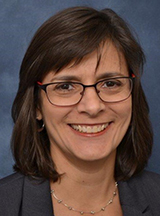 #10 – CDC as a Rural
Resource: Q&A with Diane Hall
#10 – CDC as a Rural
Resource: Q&A with Diane Hall
CDC Senior Policy Analyst Diane Hall discusses the CDC's work in rural health and the importance of data collection and storytelling.
Published March 20, 2019
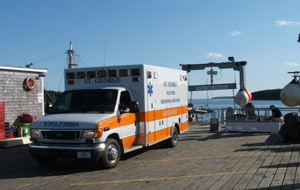 #9 – Making
Informed Decisions about Rural EMS
#9 – Making
Informed Decisions about Rural EMS
In rural America, many community members do not understand the skill level, training, and availability of the people who answer their 911 calls. The Informed Self-Determination Process helped the community of St. George, Maine learn about their EMS system and created consensus about what EMS would look like in their town.
Published April 3, 2019
 #8 –
Running
Clear: Preventing Private Water Sources from Becoming a
Health Hazard in Rural America
#8 –
Running
Clear: Preventing Private Water Sources from Becoming a
Health Hazard in Rural America
Because private water sources are not regulated, rural residents who rely on them can be more susceptible to health risks from waterborne contaminants. Water experts and a public health professional share how they are helping rural residents keep their well water clean to avoid sickness.
Published June 26, 2019
 #7 – Eye Health Needs:
Preserving the Eyesight of Rural and Underserved
Populations
#7 – Eye Health Needs:
Preserving the Eyesight of Rural and Underserved
Populations
Rural Americans of all ages often go without eye healthcare, a gap that has obvious consequences: blindness and low vision. National associations and an FQHC administrator talk about how rural vision care can be improved to increase quality of life and prevent disability in rural patients.
Read more about rural eye care:
- Teleophthalmology: Ophthalmologists Talk Remote Eye Care Solutions
- Looking at Vision-related Data: Research Gaps and Eye Care Guidelines
- Rural Eye Healthcare: Optometrist Explains the Benefits of the Medical Model of Optometry
Published January 9, 2019
Healthcare workers are four times more likely to be seriously injured on the job than other professionals. Research, tools, and campaigns are equipping rural hospital leaders to better protect their employees and develop a culture of safety.
Published September 11, 2019
The Indiana Rural Health Association (IRHA) is using federal funding to support a project that, to date, has linked 18 rural schools with 10 local provider organizations, delivering school-based telehealth to hundreds of the state's rural students. “Virtual telehealth librarians” from another federally-funded IRHA project, provided technical assistance.
Read more:
Published May 29, 2019
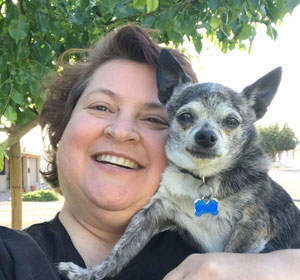 #4 – Peer
Support Specialists Care for and Connect Rural Behavioral
Health Clients
#4 – Peer
Support Specialists Care for and Connect Rural Behavioral
Health Clients
Peer support specialists are trained laypeople in recovery with a mental health condition or substance use disorder who act as mentors and coordinators for clients with similar behavioral health issues. PSSs in rural Arizona, Michigan, and North Dakota share the challenges and successes they see in their communities.
Published February 6, 2019
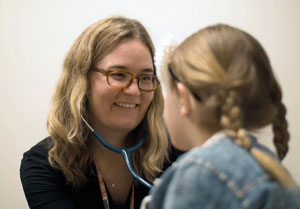 #3 – Rising from
the Ashes: How Trauma-Informed Care Nurtures Healing in
Rural America
#3 – Rising from
the Ashes: How Trauma-Informed Care Nurtures Healing in
Rural America
Wildfires. Child abuse. Sexual assault. The negative and ongoing effects of these experiences are the reason communities and medical providers are using an approach called trauma-informed care. This article features ways trauma is understood and treated in a rural community, a Wyoming pediatrician's clinic, and for nurses providing assault exams.
Published April 17, 2019
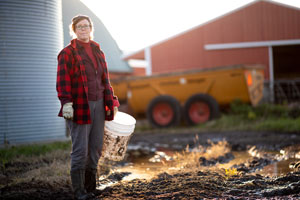 #2 – Preventing
Farmer Suicides through Helplines and Farm
Visits
#2 – Preventing
Farmer Suicides through Helplines and Farm
Visits
Difficult economic conditions have caused many farmers to experience high levels of stress and a sense of hopelessness about saving their business and way of life. The Minnesota Farm & Rural Helpline and NY FarmNet are working to improve farmers' mental health and prevent suicides.
Published May 15, 2019
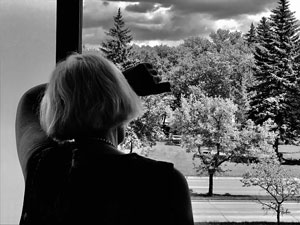 #1 – Social
Isolation and Loneliness: Insights from Rural Clinical
Providers and Other Experts
#1 – Social
Isolation and Loneliness: Insights from Rural Clinical
Providers and Other Experts
As more healthcare delivery efforts include social risk assessments, the impact of the social determinants of health is better understood. Rural clinicians, researchers, and other experts share perspectives on social isolation and loneliness.
Published July 10, 2019

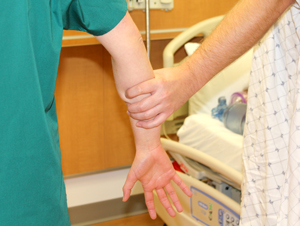 #6 –
#6 – 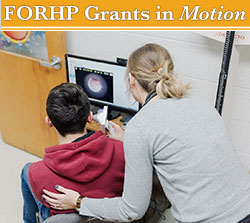 #5 –
#5 –